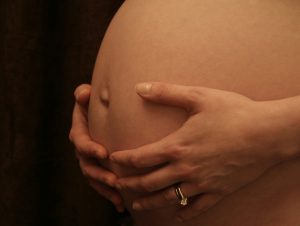A business in Hawaii has agreed to settle a pregnancy discrimination lawsuit filed by one of its former employees who alleged she was terminated from the company as a result of becoming pregnant. 
The company agreed to pay $65,000 in a resolution announced by the state’s Civil Rights Commission, which as part of the agreement also required the company to develop and implement a non-discrimination policy, including a policy that would provide training to managers and supervisors. The commission declined to reveal the name of the business or the complainant. However, according to the Hawaii Herald-Tribune, the company discriminated against the woman after refusing to reinstate her back to her position after she was on a pregnancy-related disability leave. The company also allegedly refused her a reasonable accommodation for her pregnancy-related disability and then ultimately fired her.
Plaintiff alleges she was also subject to derogatory comments about her pregnancy and the inconvenience it would cause the firm, and these began immediately after she disclosed her condition to her supervisor. Her manager informed her there were not enough temporary employees available to cover her pregnancy-related leave.
Less than two weeks from the time she began her unpaid leave, she was instructed by her supervisor to remove her personal items from the workplace in order to “make room” for two other workers who were being hired to replace her. Once she gave birth and was released by her doctor to return to work, the company refused to reinstate her. Instead, she was fired.
Hawaii, like California, has a law that protects pregnant workers by making sure employers provide leave for employees who have a pregnancy-related disability. That leave may be taken with or without pay, but it’s for a reasonable amount of time, as determined by the worker’s doctor. The state law also mandates that workers be reinstated either to their previous job or to one that is of comparable status and pay. The law also expressly prohibits the practice of firing someone due to their pregnancy or pregnancy-related disability.
State laws like this are important because federal law doesn’t extend the same kinds of protection. Pregnancy discrimination claims generally fall under the “gender discrimination” provisions, but pregnancy is not considered a “disability” and is not specifically noted in federal employment rights laws.
California, meanwhile, has some of the strongest laws for parental leave and pregnancy in the country. The California Family Rights Act applies to workers in this state who have been employed with a company for at least 12 months and work at a company with at least 50 employees in a 75-mile radius. The law extends disability benefits to workers who are not able (temporarily) to work due to pregnancy or related conditions. The law also extends certain benefits for parental leave.
In addition to this, the state also has pregnancy discrimination law known as the Pregnancy Disability Leave Law that will apply if a worker is not able to do the job for reasons related to pregnancy. Applicable conditions may include severe nausea, necessary prenatal care, bed rest (ordered by a doctor), childbirth and recovery from birth. In order to qualify for this protection, workers need to show they are unable to complete at least one essential job task without risk to their own health or that of their unborn child. The PDLL and the CFRA collectively allow new mothers up to seven months off, depending on how long she is unable to physically work.
Contact the employment attorneys at Nassiri Law Group, practicing in Orange County, Riverside and Los Angeles. Call 949.375.4734.
Additional Resources:
Hilo business pays $65K in pregnancy discrimination case, Jan. 11, 2017, West Hawaii Today
More Blog Entries:
Disability Discrimination Settlement $90K Against Wal-Mart, Aug. 23, 2016, Pregnancy Discrimination Lawyer Blog
 Orange County Employment Lawyers Blog
Orange County Employment Lawyers Blog

